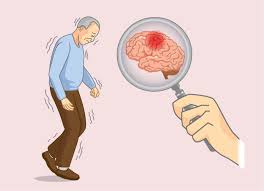
Too Much Sitting May Raise Alzheimer’s Risk, New Study Finds
Sitting for long periods may do more than just harm your physical health — it could also increase your risk of developing Alzheimer’s disease, according to a new study published in the journal Alzheimer’s & Dementia on May 13.
Researchers from the Vanderbilt Memory and Alzheimer's Center in Nashville, Tennessee, found that older adults who spent more time sitting had signs of worsening brain health and memory over time. The study included 404 participants, all of whom underwent brain scans, memory and cognitive tests, and wore activity trackers for seven days to measure how much time they spent sitting versus being active.
Lead author Dr. Marissa A. Gogniat and her team tracked participants for up to seven years. They discovered that those with higher sedentary time — meaning they sat for longer stretches of the day — had smaller brain regions typically affected in Alzheimer’s disease and poorer memory performance.
Importantly, the link between sitting and brain decline was especially strong in people with a genetic risk for Alzheimer’s, specifically those carrying the APOE ε4 gene variant. Over time, these individuals experienced faster shrinking of the hippocampus, a key brain area for memory, and showed slower thinking and language processing.
Moving More Could Protect Brain Health
The study’s senior author, Dr. Angela Jefferson, emphasized that simply reducing sitting time could help protect brain function as we age.
“Our study showed that reducing sitting time could be a promising strategy for preventing neurodegeneration and cognitive decline,” Dr. Jefferson said in a press release. “This is especially important for older adults with a higher genetic risk of Alzheimer’s.”
She added that frequent breaks from sitting, even short ones, may help maintain brain health. “It's critical to our brain health to take breaks from sitting throughout the day and move around to increase our active time,” Jefferson said.
A Wake-Up Call for Aging Adults
While previous research has linked physical inactivity to heart disease and diabetes, this study adds new urgency to staying active in later life — not just for the body, but for the brain as well.
The research underscores the growing evidence that lifestyle changes, including more physical movement and less sitting, may offer real benefits for reducing the risk of Alzheimer’s and related memory disorders.
One of the study authors disclosed ties to the biotech firm Vivid Genomics, but the findings were independently peer-reviewed.